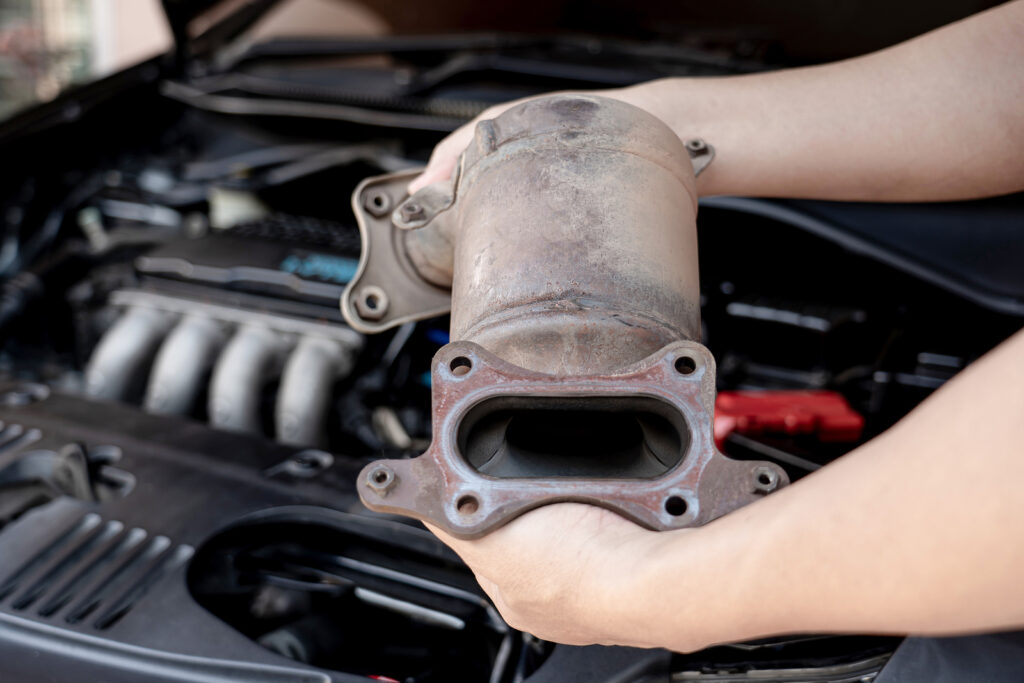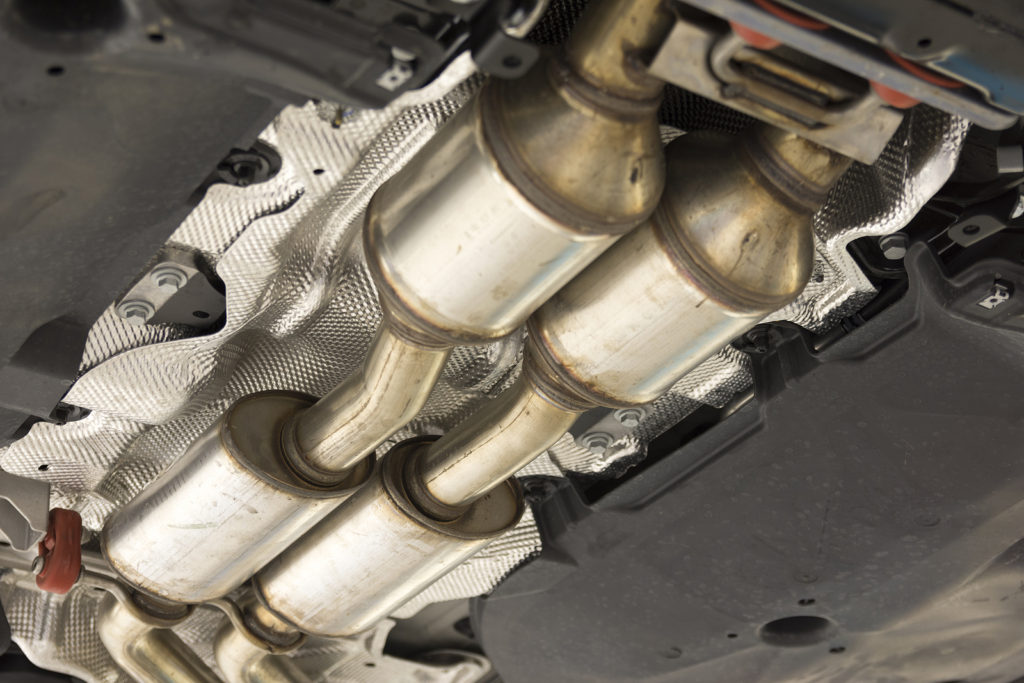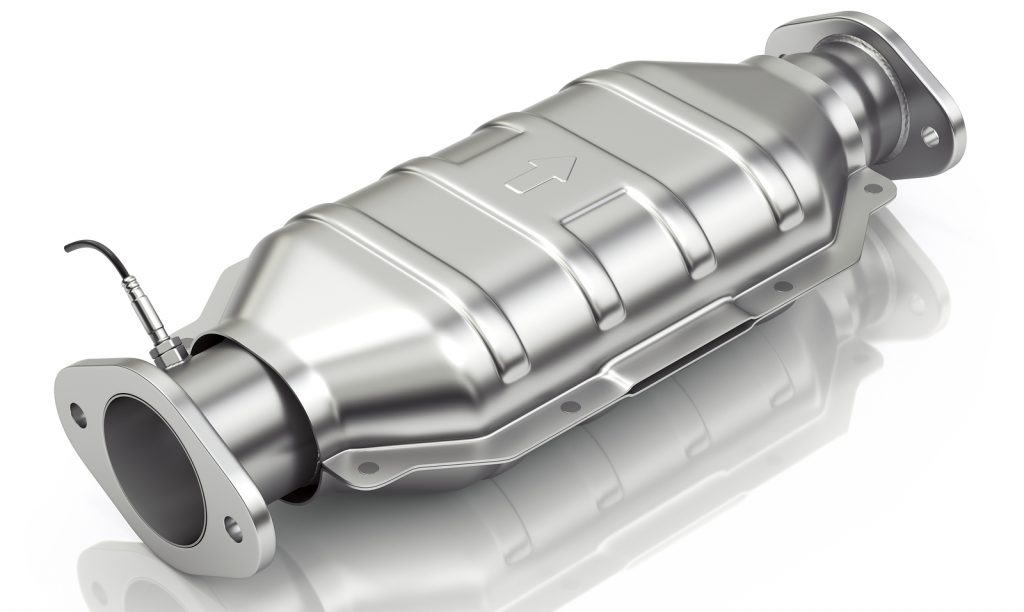Catalytic converter replacement is one of the top services offered at automotive mechanic shops. Although they are designed to last for several years, catalytic converters often experience performance issues that require repairs or premature replacement. Not sure if your catalytic converter is on the fritz or not?
Continue reading to learn the top three signs that suggest your catalytic converter is in decline, as well the average cost to replace a catalytic converter and where you can find one at a more affordable price in the Indy area.

Catalytic Converters Decrease Harmful Exhaust Emissions
Catalytic converters are very special automotive components. They are vital for all vehicles because they are designed to reduce the harmful emissions and pollutants generated by the burning fuel within your vehicle. They worked alongside your exhaust system to convert harmful emissions into non-harmful gasses, which ensures that harmful automotive fumes are mitigated as much as possible.
So, when your catalytic converter begins to act up, it is important to have it repaired or replaced as soon as possible. Not only is it hazardous to the other components within your vehicle to drive with a broken catalytic converter, but it is also harmful to the surrounding environment.
Here are the top 3 signs that suggest your catalytic converter requires an immediate mechanical attention:
1) Weakening Engine Performance
If you have noticed that your engine performance is less powerful or efficient than it used to be, it could be due to a failing catalytic converter. The reason why this may be happening is because your catalytic converter has an obstruction or clog that is blocking the exhaust flow and reducing the power of acceleration. It could also be due to a catalytic converter crack and subsequent leak. If you feel like your vehicle is sluggish when you press the gas pedal, or the car is burning up fuel at a faster rate than normal, the culprit may be a catalytic converter blockage.
2) Your Check Engine Light is On
If your check engine light, also known as a malfunctioning indicator lamp (MIL), is illuminated on your car’s dashboard, the underlying problem could be your catalytic converter. The vehicle’s oxygen and air-fuel ratio sensors can detect if your catalytic converter is having problems catalyzing the exhaust gases. Upon detection, it’ll trigger your check engine light to illuminate. This is something that needs to be repaired as soon as possible.
3) You Hear Clinking Noises When You Drive
If you hear rattling or clinking noises when you drive, it could be due to a loosen mesh components within the catalytic converter. If your catalytic converter sustains any type of damage, the internal mesh components can deteriorate, and therefore corrode and fall apart. When you hit bombs or take turns, you can hear the mesh components rolling around inside.
The Cost to Replace a Catalytic Converter
Catalytic converters are composed of rare precious metals like titanium, rhodium, and platinum. As a result of their high economic value and rarity, catalytic converters are one of the most expensive automotive parts. In fact, many cars are declared total losses by insurance companies because the cost to replace the catalytic converter exceeds the vehicle’s actual cash value, also known as fair market value.
You can expect to pay anywhere between $900 and $2000 for the cattle converter, including labor. You can however purchase a cheaper cattle converter by opting for used auto part. Used auto parts are properly refurbished to perform just as efficiently as your catalytic converter did before it began to break down. Although it won’t last as long as a brand new one, a used catalytic converter is a practical strategy for those who cannot afford to replace one out of pocket.
Are you looking to purchase a new or used catalytic converters in the Indy area? Contact Zore’s Indy at 317-247-8484 to learn more about our auto parts store in Indianapolis, and how to get started with car part delivery, locally and nationwide!
Related Posts:
Where to Find an Auto Part Number
FAQS About Auto Part Replacement
Are My Junked Auto Parts Worth Anything?



